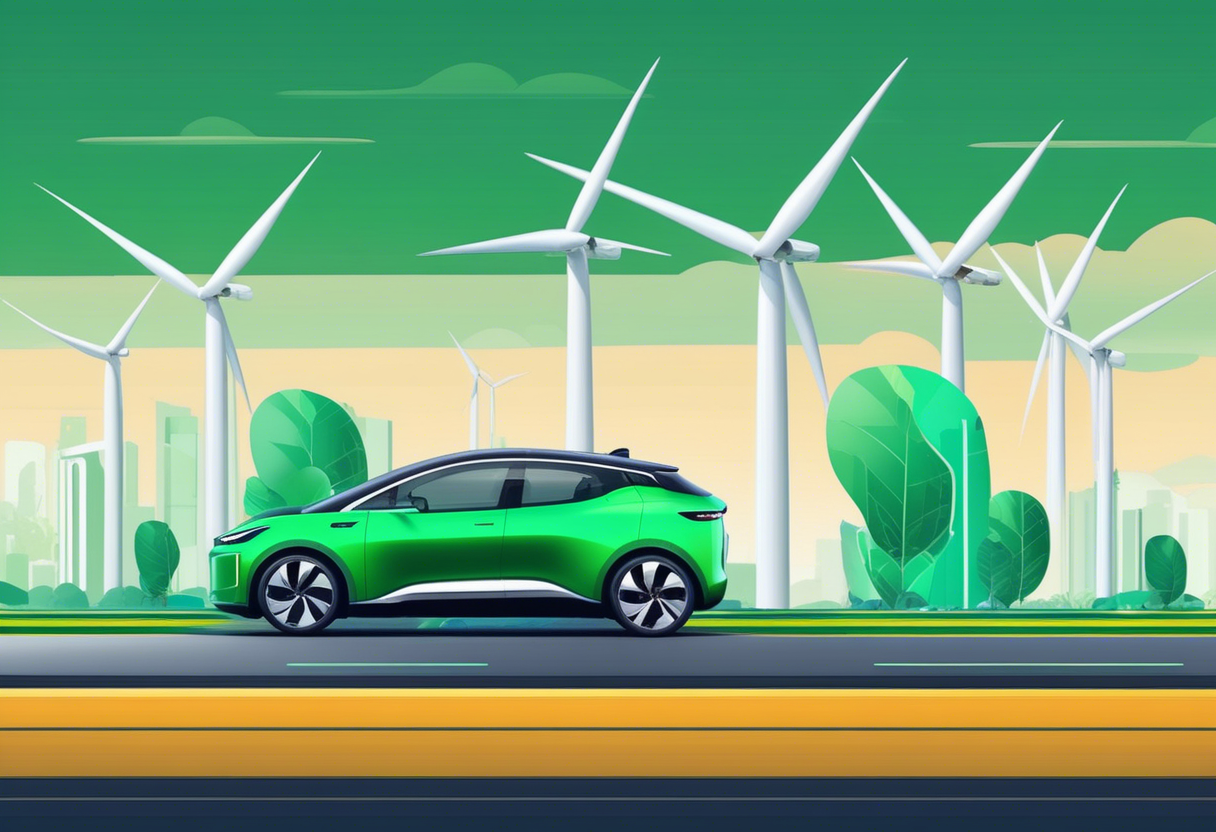Affordable Green Rides: Top Electric Cars Under $30K in 2025
The automotive industry has been undergoing a significant transformation, with electric vehicles (EVs) becoming increasingly mainstream. As we approach 2025, the market for affordable electric cars is expanding, offering more options for budget-conscious consumers who are eager to reduce their carbon footprint without breaking the bank. This article explores the top electric cars available under $30,000, providing insights into their features, performance, and the broader implications of this shift towards sustainable transportation.

The Rise of Affordable Electric Vehicles
The push towards electric vehicles is driven by both environmental concerns and advancements in technology. Governments worldwide are implementing stricter emissions regulations, and consumers are becoming more environmentally conscious. As a result, automakers are investing heavily in EV technology, leading to improved battery efficiency, reduced production costs, and increased affordability for consumers. By 2025, it is estimated that EVs will account for 20% of global car sales1.
Top Electric Cars Under $30K
As competition intensifies, several automakers are offering electric models that combine affordability with performance and range. Here are some of the most promising electric cars under $30,000 expected to be available in 2025:
Nissan Leaf
The Nissan Leaf has long been a staple in the electric car market, known for its reliability and affordability. The 2025 model is expected to offer a range of around 200 miles on a single charge, making it a practical choice for daily commutes and short trips. With a starting price under $30,000, it remains one of the most accessible EVs2.
Chevrolet Bolt EV
The Chevrolet Bolt EV has been praised for its impressive range and affordability. The 2025 version is anticipated to deliver over 250 miles per charge, with enhanced features and a modern design. Chevrolet's commitment to affordability ensures the Bolt EV remains competitive in the under $30,000 category3.
Hyundai Kona Electric
Hyundai is making strides with its Kona Electric, offering a mix of style, efficiency, and affordability. The 2025 model is projected to offer a range of approximately 240 miles and include advanced safety features. Its competitive pricing makes it an attractive option for those looking to transition to electric mobility4.
Mini Electric
For those who value style alongside sustainability, the Mini Electric provides a unique option. Known for its iconic design, the 2025 Mini Electric is expected to offer around 150 miles of range, with a focus on urban driving. Priced under $30,000, it caters to eco-conscious drivers who appreciate a touch of flair5.
Benefits of Owning an Affordable Electric Car
Owning an electric vehicle brings numerous benefits, both economic and environmental. Firstly, EVs typically have lower running costs compared to traditional internal combustion engine vehicles. This is due to cheaper electricity prices compared to gasoline, as well as reduced maintenance costs since EVs have fewer moving parts6.
Moreover, many governments offer incentives such as tax credits and rebates to encourage EV adoption, further reducing the overall cost of ownership. Environmentally, electric cars produce zero tailpipe emissions, contributing to cleaner air and a reduction in greenhouse gas emissions.
The Future of Electric Mobility
As technology continues to advance, the future of electric mobility looks promising. Battery technology is improving, leading to longer ranges and faster charging times. Furthermore, as more manufacturers enter the market, competition will drive prices down, making electric cars even more accessible to the average consumer. By 2025, we can expect a wider variety of affordable, high-performance electric vehicles that cater to diverse needs and preferences.
The availability of electric cars under $30,000 in 2025 represents a significant milestone in the journey towards sustainable transportation. With increasing options that blend affordability, efficiency, and style, consumers are well-positioned to make environmentally friendly choices that align with their budgetary constraints. The transition to electric vehicles is not just a trend but a necessary evolution towards a more sustainable future.